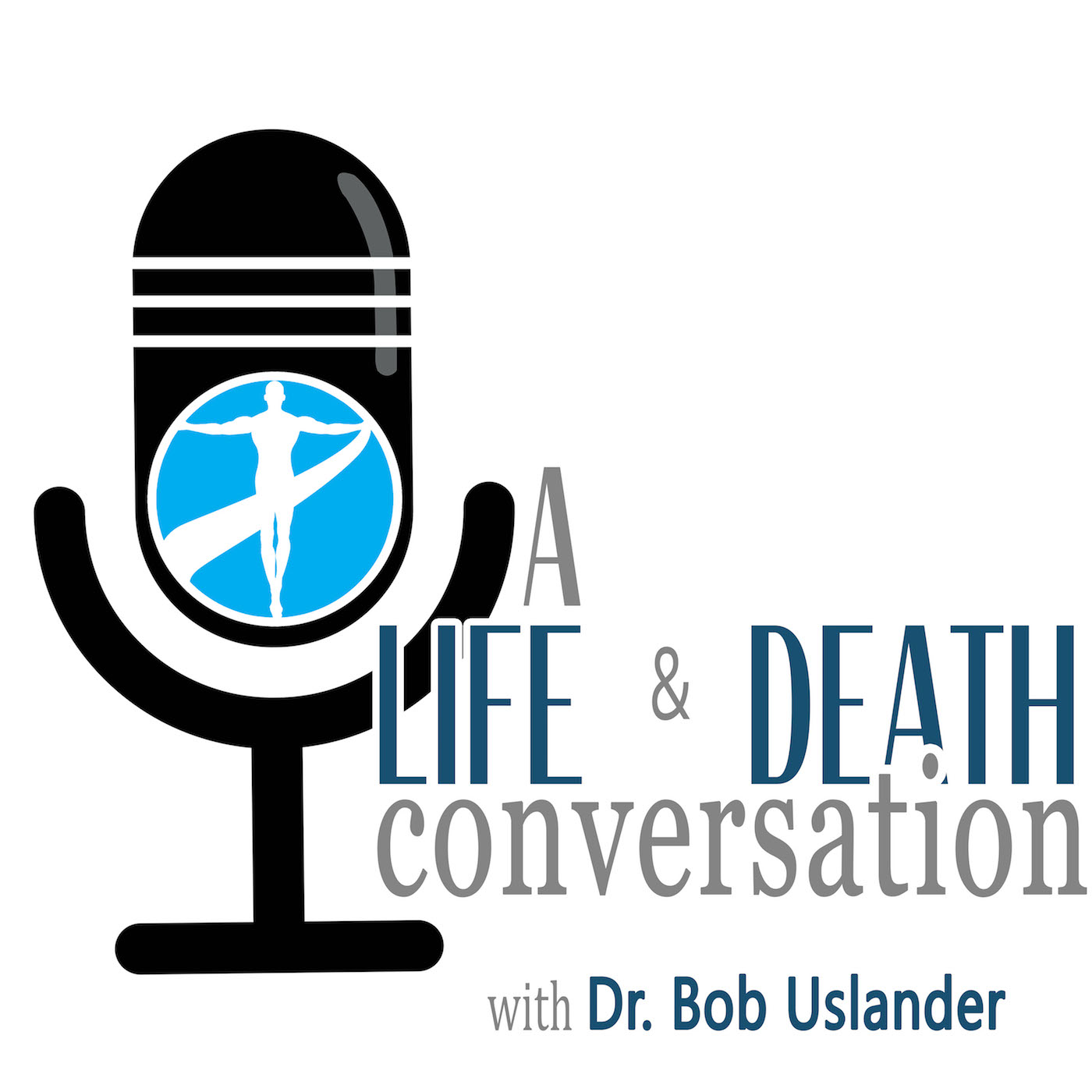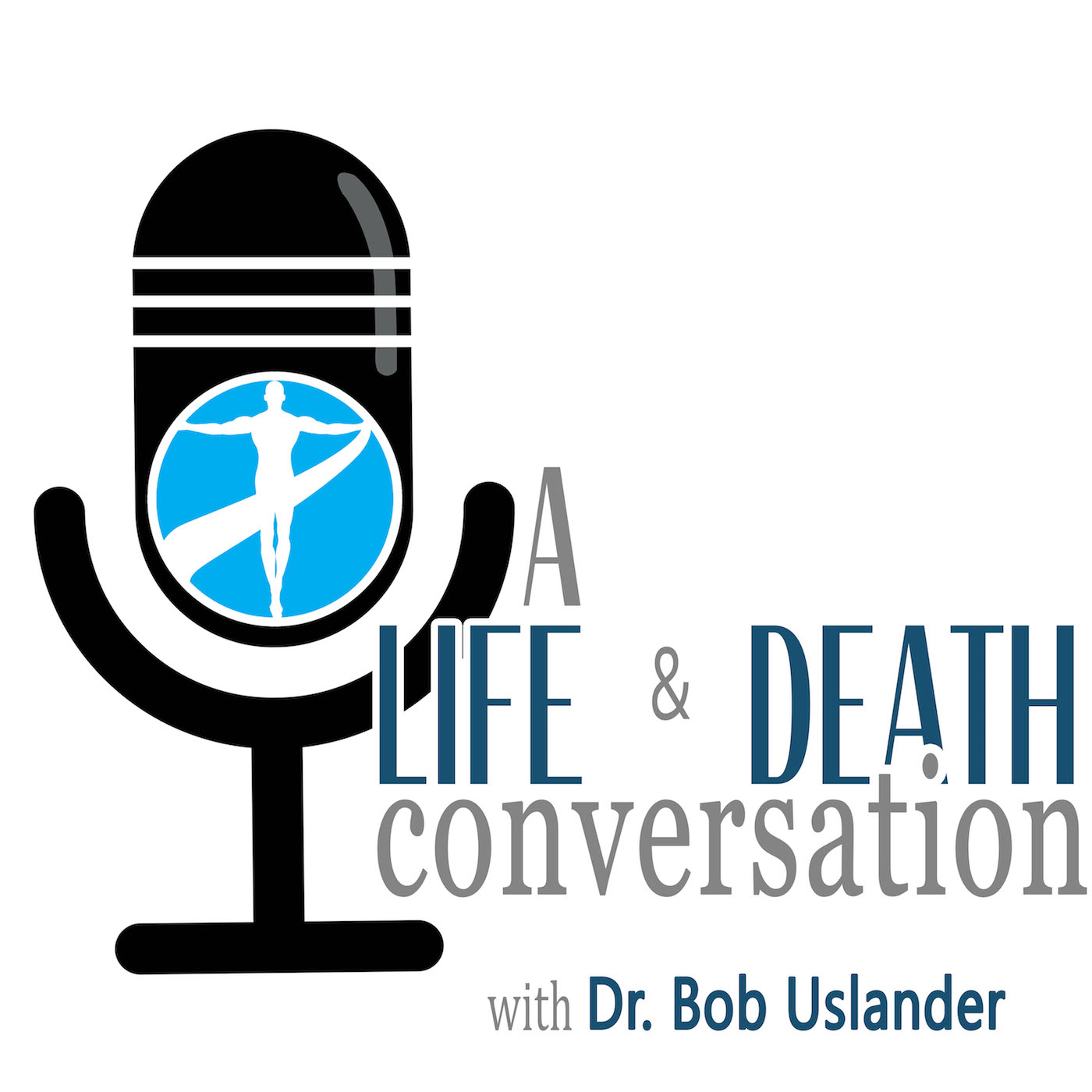Aid in Dying What It Means to Those Who are Terminally Ill, Ep. 19
Update: 2018-05-25
Description
Please Note: This was recorded as a Facebook Live earlier this year prior to the recent ruling to overturn the California End of Life Options Act 2015 by Riverside County Superior Court Judge. In response, California Attorney General Xavier Becerra filed an emergency appeal seeking a stay of Superior Court Judge Daniel Ottolia’s ruling that invalidated the less than two-year-old medical aid-in-dying law.
"It is important to note the ruling did not invalidate the law or the court would have said so explicitly in its order, so the law remains in effect until further notice," said John C. Kappos, a partner in the O'Melveny law firm representing Compassion & Choices.If this law and the right to die with dignity is important to you, we urge you to learn more from Compassion and Choices the organization that helped get the law passed. Note: A Life and Death Conversation is produced for the ear. The optimal experience will come from listening to it. We provide the transcript as a way to easily navigate to a particular section and for those who would like to follow along using the text. We strongly encourage you to listen to the audio which allows you to hear the full emotional impact of the show. A combination of speech recognition software and human transcribers generates transcripts which may contain errors. The corresponding audio should be checked before quoting in print. Need more information? Contact Dr. Bob for a free consultation. Transcript Dr. Bob: On this episode, Elizabeth Semenova and I speak very frankly about what it's like to support people through Medical Aid and Dying. We explain the process; we discuss who asks for this kind of support and why there are still so many barriers. This was originally captured as a Facebook Live and repurposed as a podcast because this information is so vitally important. Please share the podcast with everyone and anyone you feel would benefit from listening. Thank you. Dr. Bob: I'm going to do a little bit of introduction for myself, if you're watching this and you have been on the integrated MD Care site, you probably know a bit about me. I've been a physician for 25/ 30 years, somewhere in that range. Over the past several years I've been focusing on providing care for people who are dealing with complex illnesses, the challenges of aging, the challenges of dying. During these few years, I've discovered a lot of gaps in the health care system that cause a lot of challenges for people. Dr. Bob: We developed a medical practice to try to address those big challenges in those big gaps that we've encountered. It's been really remarkable to be able to do medical care in a way that is truly sensitive to what people are really looking for and what their families are looking for that is not constrained and limited to what the medical system will allow. It's not constrained by what Medicare will pay, what insurance will pay. We allow people to access us completely and fully and we are there to support them in a very holistic way with medical physician care, nursing care, social working care and then a whole team of therapists. Massage therapists, music therapists, acupuncturists, nutritionists. Dr. Bob: So that has been really fascinating and phenomenal. Elizabeth came along in the last several months. Really, she was drawn primarily to the true end of life care that we deliver and has been truly surprised how beautifully we are able to care for people who aren't necessarily dying as well. Elizabeth: Absolutely, yeah. Dr. Bob: So we can talk about all the different aspects of that, but we are here today to really talk about Medical Aid and Dying. Because, shortly after we started this practice, back in January 2016 California became one of the few states in the United States that does allow physician-assisted death. Dr. Bob: It allows what is also known as Death with Dignity, Medical Aid in Dying. The California End of Life Option Act passed in June 2016. At that point, a person with a terminal illness, an adult who is competent, had the ability to request a prescription of medicine from their physician, from a physician. That if taken, would allow them to have a very peaceful, dignified death at a place and time of their choosing. Since June 2016 we have become essentially experts and kind of the go-to team in San Diego for sure and actually throughout a good portion of Southern California because other physicians are reluctant to participate or because the systems that the patients are in make it very difficult or impossible for them to take advantage of this law. There is a lot of confusion about it. It's a very complex, emotionally charged issue. We as a team, Elizabeth and I, along with other members of our team have taken it upon ourselves to become true experts and guides so that people can get taken care of in a way that is most meaningful and sensitive. In a way that allows them to be in control and determine the course of their life leading up to their death and how they are going to die. That's why we are here. We want to educate; we want to inform, we want people to not be afraid of the unknowns. We want to dispel the myths. I'm passionate about that. We work together, and I think we do a very good job as a team, of supporting patients and families. I'd like to have Elizabeth share a little about why this is so important to her and then we are going to get into some more of the specifics about what's actually taking place, the requirements, how the process works and if there are questions people have we are going to answer those as well. We are going to go for about 20/ 25 minutes, and if it turns out that we don't get through enough of our material then we will have another session, but we don't want to make this too long. We want to make it concise, meaningful and impactful. Elizabeth: Okay. Dr. Bob: All right. Elizabeth: Okay. I started as a hospice social worker, and I became an advocate for Aid and Dying because I learned about the law. Learned that there were not a lot of options, policies, procedures in place, in Southern California when I started working in hospice for people to take advantage of and participate in the End of Life Option Act. Elizabeth: There were very, very, very few resources. There were no phone numbers to call of people who would answer questions. There were no experts who, well not no experts, who thoroughly understood the law but it was very hard to access that information. Elizabeth: I did my best to find it and became connected with some groups and some individuals who were experienced with and understood the law and became really passionate about pursuing advocacy and allowing as many people to have access to that information as possible. I started working on sharing that information and being a resource and learning everything that I could so that other people could have that. How I became connected with Integrated MD care and with you, I found you as a resource for another client, and we started having conversations, and I learned that it was possible to be supportive of people through this process through the work you were doing and I took the opportunity to become a part of it. We have done a lot to support a lot of people, and it's become a really special part of our work and my life. Dr. Bob: Why is it so important to you? Why is it so important to you for people to have access and the information? Elizabeth: I really believe that every life can only be best lived if you know all of the options that you have available to you. So how can you make choices without information? Right? So when it comes to something like this which is a life and death situation, quite literally, there are limited resources for people to make informed choices. What could possibly be more important than having access to information about what your legal rights are to how you live and die? With California only having begun this process of Aid and Dying. Exploring different perspectives and legal options and philosophical positions on the subject, I think it's really important to open that conversation and to allow people who support it as well as people who are against it to have those conversations and to explore how they feel about it and why. Then of course for the people who want to participate, who want information, resources, support in the process they have every legal right to it, in my opinion, they have every moral right to it and if there are no other people who are willing to support them I feel it is my duty to do that. Dr. Bob: Awesome. And you do it well. Elizabeth: Thank you. Dr. Bob: Yeah it's kind of crazy to think we have this legal process in place. People have spoken up and said, we want to have access to this, and we believe it's the right thing. Despite the fact that we have a law in place that allows it, it was so difficult, and it's still is to some degree, but especially in the beginning, it was like a vast wasteland. If somebody wanted to find out how to access this process, no one could really give them adequate information. There were organizations that would tell them what the process is and how it happens but there was no one stepping up to say 'I'll support you.' There were no physicians, and there was no one who was willing to give the name of a physician who was willing. It was very frustrating in the beginning of this process, in the first, I would say, the first year and a half. Still, to some degree, getting the right information, getting put in touch with those who will support it is difficult or impossible. Even some of the hospital systems that do support Medical Aid and Dying their pr
Comments
In Channel







